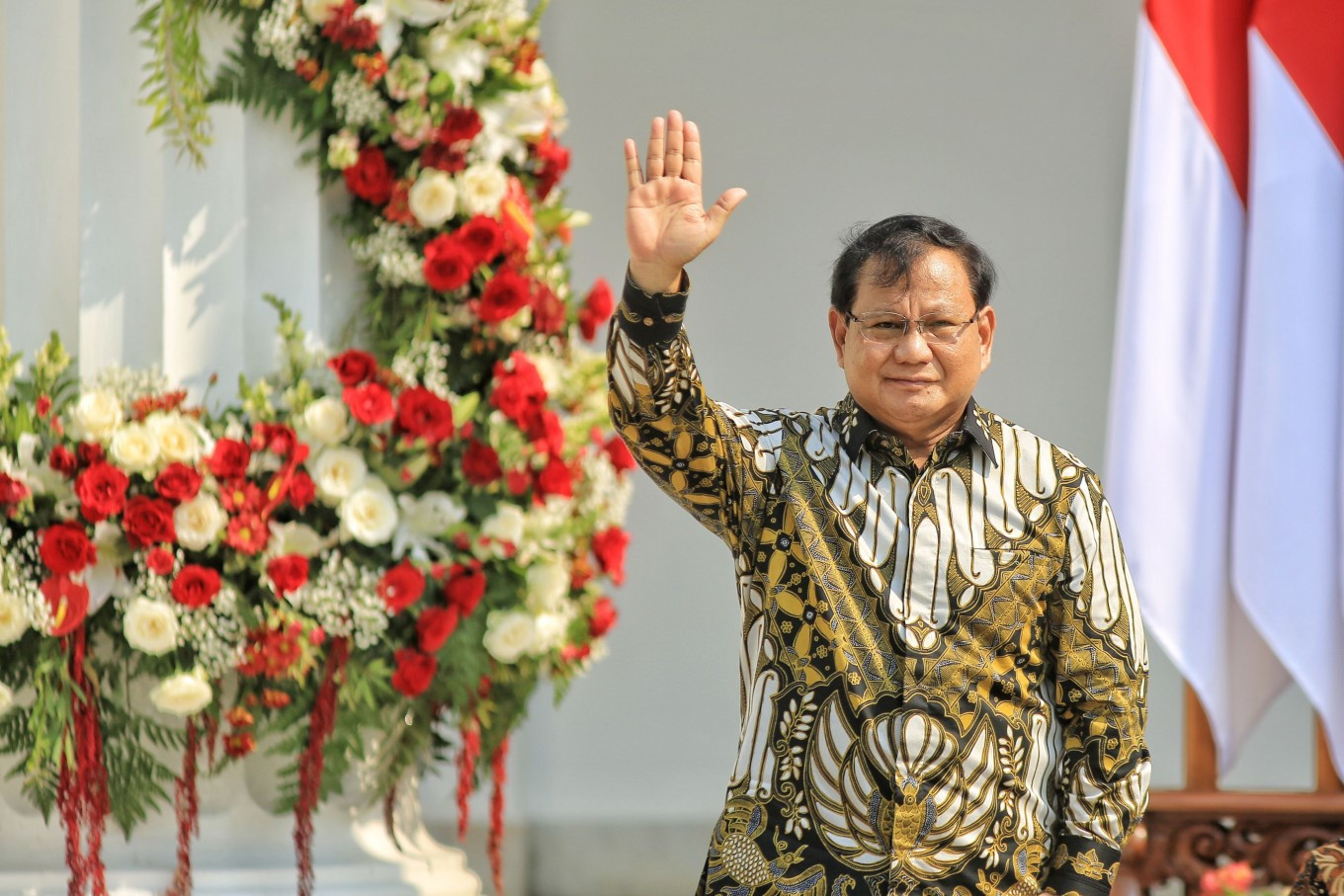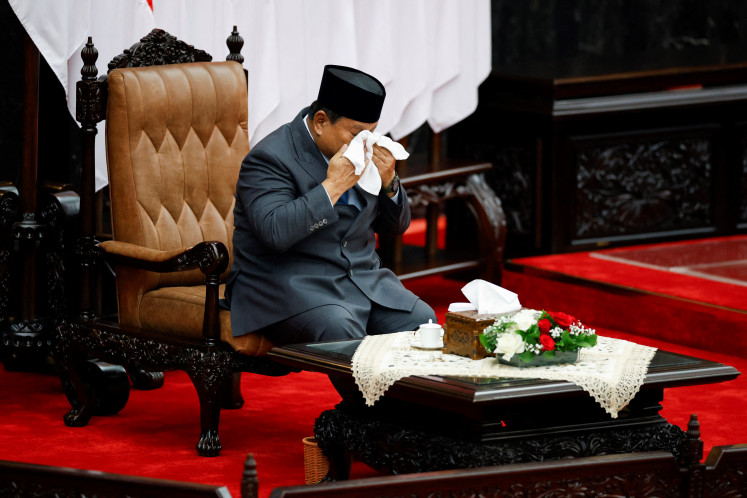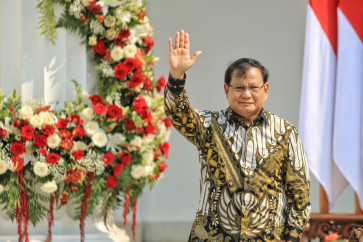Popular Reads
Top Results
Can't find what you're looking for?
View all search resultsPopular Reads
Top Results
Can't find what you're looking for?
View all search resultsAnalysis: CSIS survey shows young voters want change, not Prabowo
Change text size
Gift Premium Articles
to Anyone
 Defense Minister Prabowo Subianto during the Indonesia onward cabinet annoucement by President Joko “Jokowi” Widodo on Wednesday, October 23, 2019. The lineup of Jokowi's second-term Cabinet, a mixture of old and new faces, professionals and politicians — including Jokowi’s erstwhile rival in April’s presidential election. (JP/Seto Wardhana)
Defense Minister Prabowo Subianto during the Indonesia onward cabinet annoucement by President Joko “Jokowi” Widodo on Wednesday, October 23, 2019. The lineup of Jokowi's second-term Cabinet, a mixture of old and new faces, professionals and politicians — including Jokowi’s erstwhile rival in April’s presidential election. (JP/Seto Wardhana)

Young people aged between 17 and 39, who will make up 54 percent of voters in 2024, want a president who can make significant changes and they don’t think 70-year Prabowo Subianto, despite his huge popularity, is their man. In scenarios of two- and three-horse races involving Prabowo, they would instead vote for either Central Java Governor Ganjar Pranowo or Jakarta Governor Anies Baswedan, both 53, shows a survey by the Jakarta-based think tank, the Centre for Strategic and International Studies (CSIS).
Prabowo leads in popularity among all public figures touted for the 2024 presidential election, according to the CSIS survey, perhaps unsurprisingly: He ran in 2014 and 2019 and lost both times to Joko “Jokowi” Widodo, and now serves as defense minister in Jokowi’s Cabinet. But being the most popular figure will not necessarily translate into votes, the survey notes.
In the CSIS survey of 14 candidates, Ganjar would win ahead of both Prabowo and Anies if the election were held today. In a potential runoff of the same three candidates, which is constitutionally mandated to ensure the winner has over 50 percent of votes, Prabowo would lose to both Ganjar and Anies, while Anies would beat Ganjar in a face-off.
If so, should Prabowo quit the race? Maybe not, as the margin of victory in both the two- and three-horse scenarios are not big, and he is also counting on older voters to get him in the presidential chair. But he must also be prepared for disappointment to go down in history as a three-time loser.
The CSIS survey was held in August and polled 1,200 respondents of the Generation Z (aged 17-24) and millennial (24-39) groups in all 34 provinces.
These two groups include first-time voters and will have a significant but not conclusive impact on determining the outcome in 2024. More importantly, the survey sheds some light on their aspirations and political preferences, which are not necessarily in line with those of older voters. Presidential hopefuls should therefore take note.

Prabowo has already announced he is running on the ticket of his party Gerindra, which has formed an alliance with the Nation Awakening Party (PKB). Anies has gained the formal backing of the National Democratic Party (NasDem), but he needs additional support from another party or two be eligible to run.

















